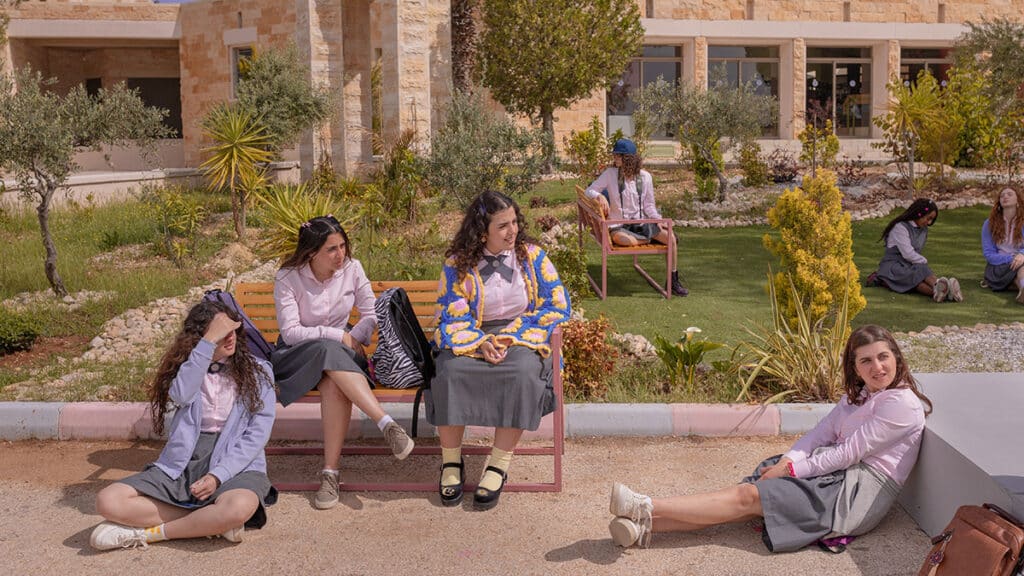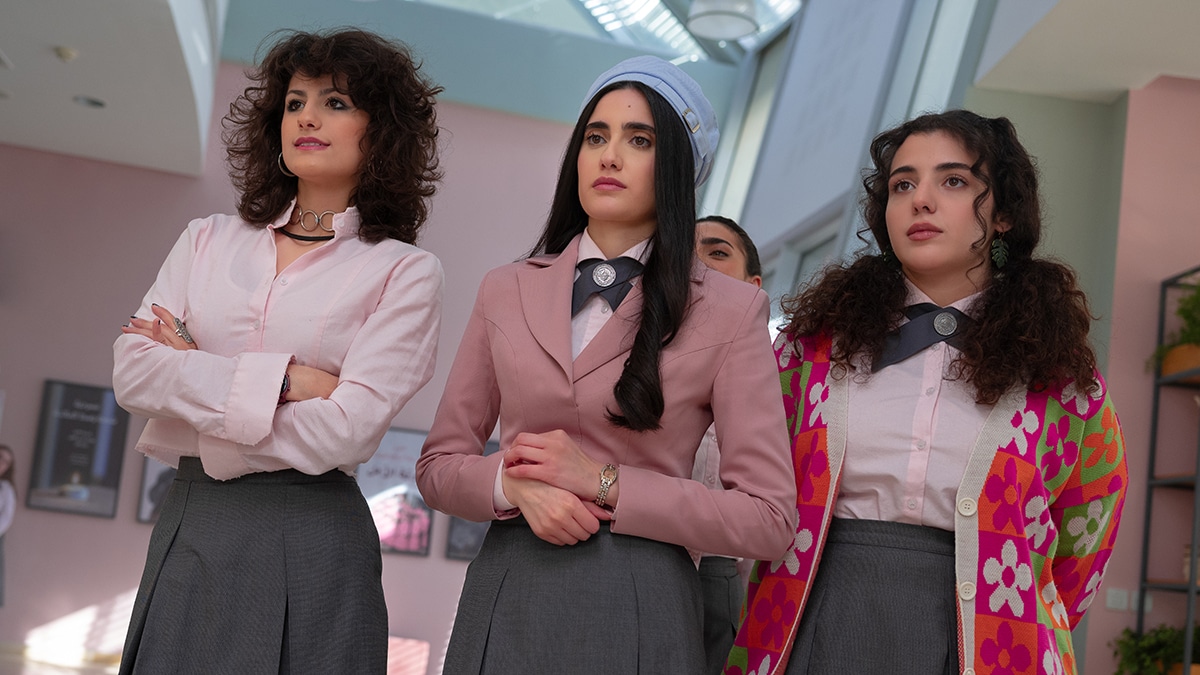Created by Tima Shomali, AlRawabi School for Girls is Netflix’s second Jordanian production. The show features a mostly female cast, carefully deals with triggering topics, and has a stunning aesthetic. Note: light spoilers ahead.
AlRawabi School for Girls has been lauded for examining the detrimental effects of bullying. Both of the show’s seasons also examine the role of social media in exacerbating modern girls’ struggles. The show’s first season was praised for its portrayal of honor killings and sparked discussion in parts of the world where it continues. Season 2 didn’t disappoint. The show continues to explore salacious themes while making sure to show us character development, complexity, and moments of teen girl solidarity.
Worldwide, young women and girls face harsher consequences for making mistakes, challenging norms, or simply wanting to be heard. Teen girls are expected to keep family secrets, and they may witness abuse at home that affects how they act.
Without excusing bullying or inappropriate behavior, AlRawabi School for Girls delves into the home lives of its characters, allowing us to better understand the unhealthy dynamics that inform the characters’ choices.
This season’s leads — Sara, Tasmeen, Farah, Hiba, Nadeen, and Shams — have wildly different families, values, and hobbies. Fans of cinema, desert landscapes, and the symbolism of color will also enjoy the way AlRawabi School for Girls uses interior decoration, makeup, and wardrobe to give us clues about each character’s point of view.
The show also pays homage to the central characters of Season 1 by giving us answers about the consequences of their actions.
But what about the adults in the show?
AlRawabi School for Girls shows us the ways mothers and fathers are expected to raise their daughters. This season’s characters’ actions and social media posts all collide with family dynamics, values, and the pressure to constantly save face. Season 2 also looks at the pressure some teens feel to chase validation through their digital persona.

Eventually, actions taken in private clash with family systems that affect the school.
Not every parent or teacher is interested in being overly strict. The show gives us multiple examples of adults who try to be better advocates by challenging the norms they were raised with and listening to the teens. It’s clear that AlRawabi School for Girls’ main characters understand this, and these messy attempts to get along offer a refreshing take on what it means to have age-appropriate boundaries.
Sara, the show’s main character, deals with some of the worst ramifications for becoming social media famous. Her controversial video is leaked by a (presumably) older male, causing a chain of events that changes alliances, loyalties, and attitudes. The show uses this particular plot point to criticize the overly cruel price women pay when private videos or photos are leaked without their consent.
But on top of dealing with these loaded topics, AlRawabi School for Girls is also a proud display of contemporary Jordanian culture. Its soundtrack is amazing, featuring mellow, dance, and original music created just for the show.
Despite the focus on high school milestones, it’s a perfect watch for people of all ages who want to better understand what it is to be a young woman today, create a safer environment for girls, and learn more about changing patriarchal structures that can have lethal consequences for women and girls. We’re a lot more alike than we think, and that means women around the world can find solace and solidarity in knowing we can support and cheer each other on.

The first two seasons of AlRawabi School for Girls are now available for viewing on Netflix.

